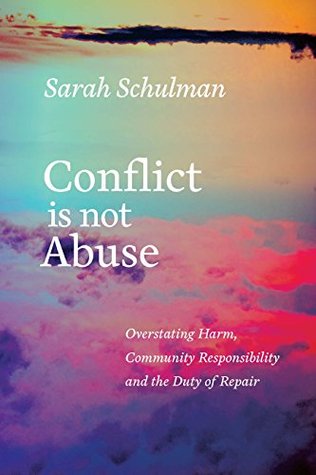More on this book
Community
Kindle Notes & Highlights
Read between
October 23 - October 26, 2016
It is clear from history that progressive cultural and political advancement is not natural or neutral and does not occur on its own momentum.
Trying to create communication is almost always the uphill struggle of the falsely blamed.
And experiencing confusion, disagreement, frustration, and difference does not mean that we are being violated again.
Being accused of desire is as old as history itself, and is central to the queer experience.
Uneven desire is not a crime, it is not rude, it is not an assault or grounds for shunning or being hurtful.
White people can’t face our need to subjugate and diminish others, so we create a claim that they have done something wrong which justifies this punishment.
The refusal to actually ask someone what they think is happening and to instead insist on unilateral interpretations compounds misunderstanding and then injustice.
Email creates repression and anxiety. No one is seen and no one is affirmed.
The now “forbidden” ten-to-twenty-minute phone conversation could save the subsequent months or years of misplaced bad feeling.
There should be a relief in discovering that one is not being persecuted, but actually, in the way we have misconstrued these responsibilities, sadly the relief is in confirming that one has been “victimized.”
No answer is not an answer. It is unreasonable to expect other people to interpret our silences.
People may feel angry, frustrated, upset. But this does not mean they are being abused. They could, instead, be in Conflict.
People may not know how to make things better, how to look at their own participation, how to deal with feeling badly about themselves.
People may be part of negative friendships, families, or communities who attack outsiders instead of being self-critical.
He somehow had gotten the wrong message that “being a good friend” meant not asking questions that reveal truths. Instead he was expected to join in, uninformed, on the condemnation of the woman.
In listening to him, I came to believe that the same personality type who would ice out or attack someone without talking to them first out of false “loyalty” would be the same person who would later be unable to apologize. It’s a character issue that becomes the building blocks of fascism or any supremacist construction.
Perpetrators increasingly are the ones to call the police, threaten legal action, send lawyer letters, or threaten or seek restraining orders as part and parcel of their agenda of blame and unilateral control.
“The current paradigm is encouraging all of us to think we are in abusive relationships,” Hodes explained. “And if you are not in an abusive relationship, you don’t deserve help. Being ‘abused’ is what makes you ‘eligible.’ But everyone deserves help when they reach out for it.”
Ultimately, the blurring of Conflict and Abuse, Hodes says, “is epidemic, and leads to everyone identifying as a victim, which is paralyzing the search for solutions.”


